

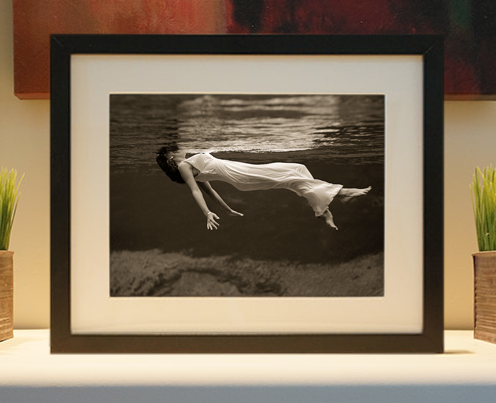
Framed or unframed, desk size to sofa size, printed by us in Arizona and Alabama since 2007. Explore now.
Shorpy is funded by you. Patreon contributors get an ad-free experience.
Learn more.

- Freeze Frame
- Texas Flyer wanted
- Just a Year Too Soon
- WWII -- Replacing men with women at the railroad crossing.
- Yes, Icing
- You kids drive me nuts!
- NOT An Easy Job
- I wonder
- Just add window boxes
- Icing Platform?
- Indiana Harbor Belt abides
- Freezing haze
- Corrections (for those who care)
- C&NW at Nelson
- Fallen Flags
- A dangerous job made worse
- Water Stop
- Passenger trains have right of way over freights?
- Coal
- Never ceases to amaze me.
- Still chuggin' (in model form)
- Great shot
- Westerly Breeze
- For the men, a trapeze
- Tickled
- Sense of loneliness ...
- 2 cents
- Charm City
- What an Outrage
- Brighton Park
Print Emporium
The Shoe Line: 1943
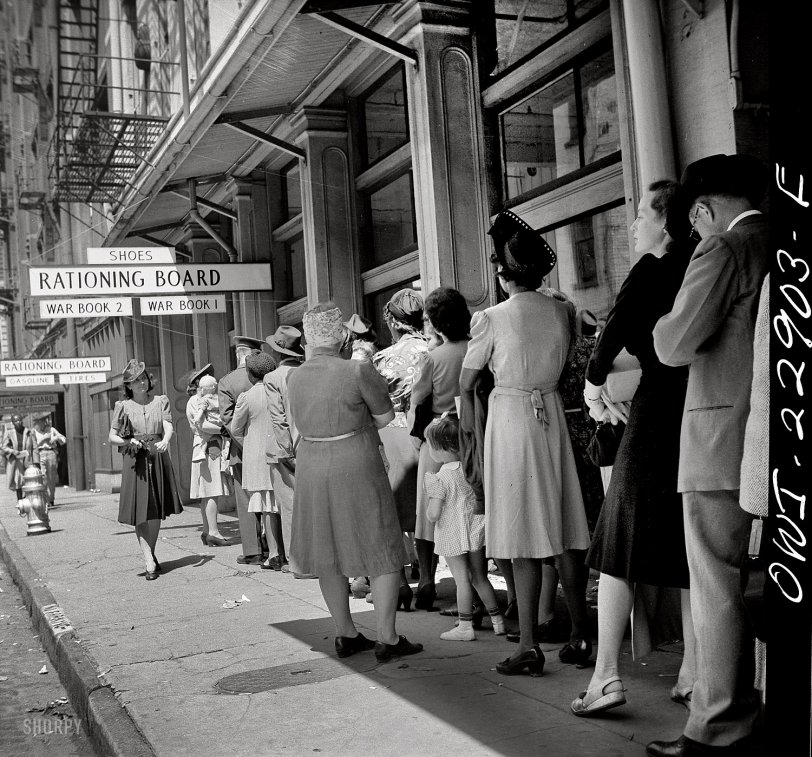
March 1943. "New Orleans, Louisiana. Line at rationing board." Medium format negative by John Vachon for the Office of War Information. View full size.
Bacon Grease and Toothpaste Tubes
I was eight years old when the war started. Mom used to save bacon grease, for which we got 2 cents a pound. It was used to make munitions. Toothpaste tubes were made out of tin, which, since the Japanese had taken Malaya, was scarce. If you wanted a new tube, you had to turn in the old one.
We had it pretty good, living in New York City. My dad was too old for the war, and suspect anyway, for he was a German. Not many wanted to hire him. He got a job at the Merchant Seaman's YMCA and used to bring home some butter and coffee, which was priceless. He also brought home tales of the survivors, which gave us a clue as to how bad things were going for us in early 1942.
The govt kept mum on all the merchant ships being sunk offshore but the people along the New Jersey coast told us about all the bodies and wreckage being washed up every day.
Red Dot Margarine
Some of my first memories (born on July 4th, 1942) were of my mother taking her clear plastic bag of margarine out of the shopping basket and plopping it down on the kitchen table. In the center of one side the soft mass was a red dot.
She would let me play with it for a while, urging me to "make the red disappear." This was more than a child my age at the time (3?) could handle to her satisfaction. But with sufficient kneading and rolling that bag around, it came out yellow, as advertised!
It was good to be a farmer during WWII
Another great picture! My grandfather was a 32-year-old dairy farmer, on a farm outside of Walla Walla, Washington, as of the start of America's involvement in the war. With so much food required to feed the troops, farmers were essential to the war effort, so they were exempt from the draft. Although they were affected by the rationing of shoes, and other items, they were not affected by the rationing of certain things. Farmers got all of the gasoline they needed. My grandparents still avoided driving their family car more than they needed to, but they definitely benefited from it. Meat rationing didn't affect them much, either, because they could keep enough of whatever food they raised, for their own use.
My mother remembers her school having scrap metal drives. Mom also had an uncle who hoarded sugar. He kept several large bags in his basement. Had he been discovered, he could have gone to jail.
The war had some interesting effects of my father, who was the son of a divorced mother who really struggled just to provide her children with the very basics. From a very young age, Dad always had a job. Born on November 10th, 1928, he was a little too young to serve in the military, until the very end of the war. The fact that so many of the young men were gone meant that there were jobs available for teenage boys that wouldn't have been, otherwise. At the age of 15, Dad was working as a bartender!
The Line
They are lining up for their ration books. These would include the coupons for the particular product, in this case shoes. If I'm not mistaken - and I could be because Canada used a similar but different system - the coupon books were issued on a monthly basis. I can only imagine that they would stagger the dates to get ration books for various commodities so that you didn't have everyone lining up for everything on the same day. Alternatively, they may have been in the process of changing from one design to another to prevent counterfeiting, which was a major problem.
What exactly is the line for?
Are they queueing up for the ration books, or for the shoes themselves?
I've seen pictures of clerks in ordinary stores -- butchers and the like -- accepting coupons. Wouldn't shoe stores do the same?
The only "rationing" I remember is the "odd and even" system of gasoline sales during the energy crisis of the 1970s.
Cruel shoes
My mother remembers the poor quality dress shoes that she could buy back then. She says they were practically cardboard with ribbon, and fell apart if they got wet. She danced at the USO in Dallas, so she needed good shoes for that. But, everyone sacrificed, so that soldiers and Marines could have the materials needed for combat boots.
Ration stamps
I recently found some of these stamps and tokens in some of my mother's things. I was pretty young, but I remember Mother counting out the stamps at the stores.
Good Grooming 101
Not a slob in sight. Any one of these people would be considered presentable enough to work in an upscale environment today. Personal pride and self-respect counts for something. It seems to stand out in these old photos above all else. Thanks for this flashback and proof that America's backbone (its people) seemed so much stronger then.
Gravier Street
Not 100% percent sure, but the building details and the fire hydrant match perfectly even 67 years later. 522 Gravier Street looking toward Carondelet.
Rationality
My grandmother talked about rationing, and how it affected her cooking; the thing in particular I remember was that sugar was rationed so she would carefully hoard it so she could bake birthday cakes for her kids. My mother remembers it because butter also got rationed, but you could get oleomargarine; she hated that because the margarine came in a tub with a separate packet of yellow food coloring. She had the job of kneading the coloring into the otherwise lard-colored and unappetizing oleomargarine.
My grandfather on my father's side got a extra gasoline ration because he was a member of the South Carolina Senate & often had to drive back and forth to Columbia (the state capitol). His first cousin was a country doctor and got extra gasoline too, for making house calls etc.
And both my parents recalled going out with other kids on scrap metal collecting expeditions to contribute to the war effort.





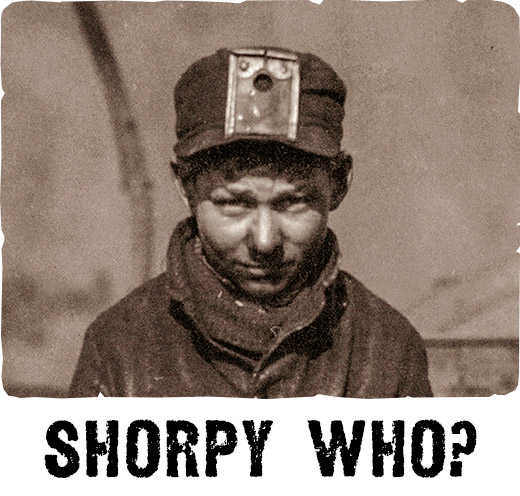
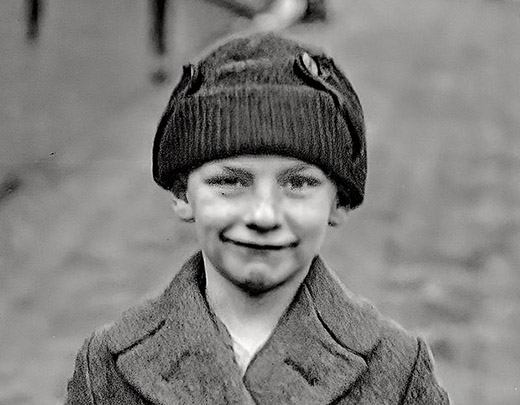
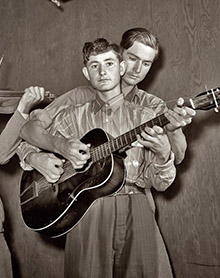
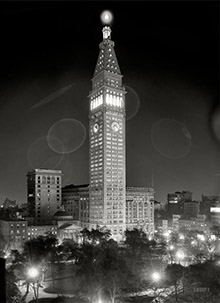
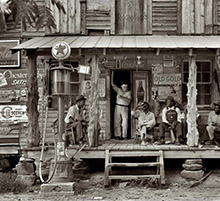
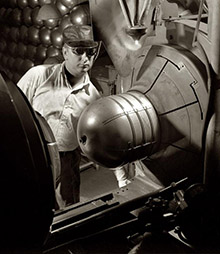
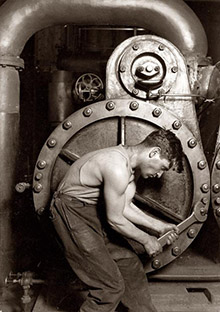

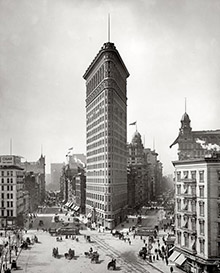



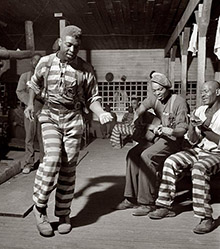

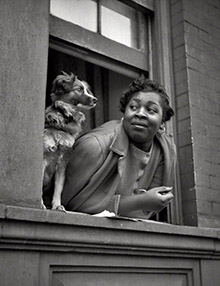

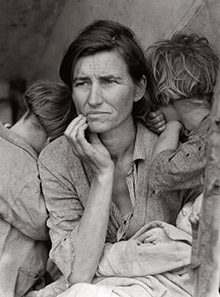

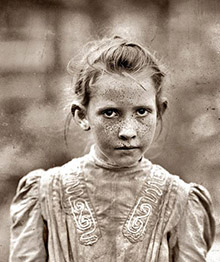
On Shorpy:
Today’s Top 5